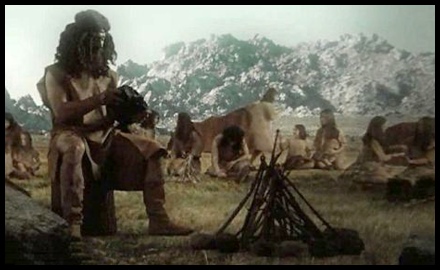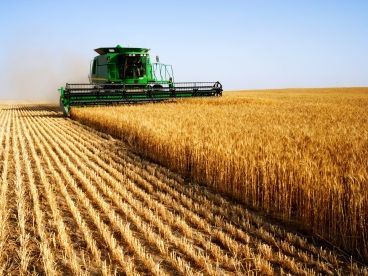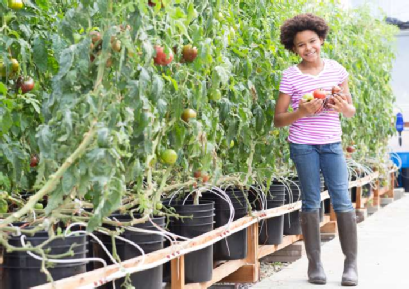SARAH STARR
SPIRITUAL AUTHOR

Our Ancient Heritage

Our Ancient Roots.
I wrote my novel Dream Time to raise awareness of our ancient indigenous cultures and to remind us in the modern western world that since the Industrial Revolution ordinary peoples’ connection with the land has been severed and largely forgotten.
In terms of the earth’s history, mankind has not been around for very long. The first humans to evolve on the planet were gatherers and foragers; they lived in small communities and made little environmental impact because they made use of everything they collected and respected their surroundings as their home. This was as true here in Britain as anywhere else on the planet.
Not much is known about the spirituality of these ancient cultures but it is thought they held the earth, sun and moon in great reverence. Through early cave artwork it is also believed that the animals these people hunted and ate were respected. In some cases the power of the animal may have been seen as entering the body of the person who consumed it giving greater strength, agility and courage.
Early communities sometimes known as Tribes each had their customs, chief, leader, or wise-man. Women often had a special role, as with the Native Americans where the females were the only ones who could cast a vote. Adolescent men often went through a rite of passage which could involve a testing or extremely painful endurance ordeal. Much celebrating and merriment followed once the boy had been proclaimed a man.
We are One Tribe.
It is widely believed that all humanity originally sprang from one African woman. The advent of DNA testing has enabled modern man to see this truth after taking numerous test samples across many cultures. And yet we remain divided as a species, seemingly intent on continual war somewhere on the planet. This huge disconnection from who we truly are as humans has continued to deepen in the western world, causing widespread problems such as depression, dysfunctional relationships, weight gain and general disease.
People throughout modern society often feel that money and possessions are the answers to their problems, and that may be true for some! But for most of us on the planet it is happiness and acceptance that we seek. Happiness from knowing we are here to serve a purpose and acceptance from our peers to feel we play a part in the community tribe. These are very basic needs that are often overlooked or just suffocated under the immense weight of responsibility that comes from living and working in a modern society.
Throughout my career it I have seen human resourcefulness and inspiration triumph time and time again. It is this courage I feel we should celebrate, the part of us that knows how to build and create new ways of living as we have done across the planet since our ancient days. We are by our very nature a communal species. Otherwise why are we drawn to each other and able to live, work and create together in a positive way?
But are we really able to return to some of our ancient roots, and why would we bother to do so?

The Question of Oil.
Oil is responsible for a multitude of purposes, from fuelling all types of travel and industrial engines to ingredients in the cosmetic industry. Since finding oil, the western world has been having a blast. But this supply although seemingly abundant, cannot last forever. Moreover, modern farming practices will not prove to be productive for the long term; that is into the later part of this century. In terms of our existence, that’s not so far away either.
Recent experiments have shown that small scale farming and permaculture produces more yield per crop per square metre than current large scale operations. In the future it may be necessary to change what is grown and ultimately also our eating habits. For instance, perhaps more nut based products and less grain based. Grain is farmed in vast quantities across the western world but requires huge amounts of fertilisers and insecticides, as well as oil based diesel/petrol to fuel the farm machinery that harvests and processes it.
The ancient Aborigines have always been a deeply spiritual people, who place importance on family relationships and who share everything. They hand down stories and songs in the form of what we would see as Folklore and tread lightly upon the Earth, leaving no waste or damage behind them. They also revere the planets, the stars, animals and nature. Using fire they are able to master the land so that new plants can grow where vegetation once prevented it. Trading with other tribes allows different stories to be shared, and new goods exchanged.
They have no use for grain, or for farming any crops. Living in small, roaming communities they gathered what they needed day by day. They ate foods that were native to their country until the first settlers came. (The Australian landscape was not suited for these farming practices and had to be prepared over many years.) Until the Industrial Revolution, we had a different but similar model; we grew most of what we needed and killed small animals or fish when we had the chance. As recently as the Second World War, people shopped locally but supplemented their food with what they grew themselves.
The Age of Enlightenment.
Early Britain’s were resourceful, clever and brave. Like so many other ancient societies we traded with other countries while retaining our independence and our own unique identity. Our own stories and songs were exchanged and taught to younger generations. Not without many wars were we invaded and taken over, and throughout the centuries many from overseas settled here to make ours the society it is today. Much of our ancients’ food was gathered, produced and slaughtered locally, while those living nearer to the shoreline would have included seafood and sea vegetables in their diet. Today many regional specialities are to be found where cuisine is concerned.
By the middle ages, most ordinary people were essentially farmers. Families were granted a ‘strip’ of land to work, making them for the most part, self sufficient. In the 1800’s these parcels of land were taken by landowners and made into larger smallholdings or farms. This left a large working class who had no choice but to seek employment in the new mills and other industrial factories. During the Second World War much land was re-deployed back into allotments and for farming purposes to feed the nation. Some left over parcels of land still survive today as parish or council run allotments.
It is still possible to grow much of our food today. If you have no garden, try growing a few herbs on your kitchen windowsill as even this will save you money and bring satisfaction. Using neighbourhood shops boosts the local economy and enables a feeling of connection with your community. Joining groups and classes in your area can further strengthen this positive feeling of being included.
It is important for children to learn the skills of growing, preparing and cooking food. Who knows but it may make all the difference to them in the years to come. These life-skills are easily passed on from parent to child even if all you have to hand are some plant pots. Anyone can grow cress or sprouting seeds on a piece of kitchen paper! To be able to grow and harvest your own food is one of the most rewarding experiences in life. It is also a seed of knowledge that has remained within us from our ancient days as tribesmen and women. Even the smallest amount of propagation will start to connect you again with the Earth - our provider and home.
We are one global Tribe called humankind. But for this connection to grow we have to begin with knowing our neighbours, our local shopkeepers and representatives. From small beginnings, we can start to take back our power and learn to write the next page of our society’s destiny and survival. Modern Tribalism should not be about gangs fighting each other; it should be the reinstatement of our very roots of existence.

"A human being is part of the whole called by us universe, a part limited in time and space. We experience ourselves, our thoughts and feelings as something separate from the rest. A kind of optical delusion of consciousness. This delusion is a kind of prison for us, restricting us to our personal desires and to affection for a few persons nearest to us. Our task must be to free ourselves from the prison by widening our circle of compassion to embrace all living creatures and the whole of nature in its beauty. The true value of a human being is determined by the measure and the sense in which they have obtained liberation from the self. We shall require a substantially new manner of thinking if humanity is to survive."
~ Albert Einstein.
* * * * * * * * * * * * * * * * *
“A man’s heart away from nature grows hard.”
Standing Bear- Oglala